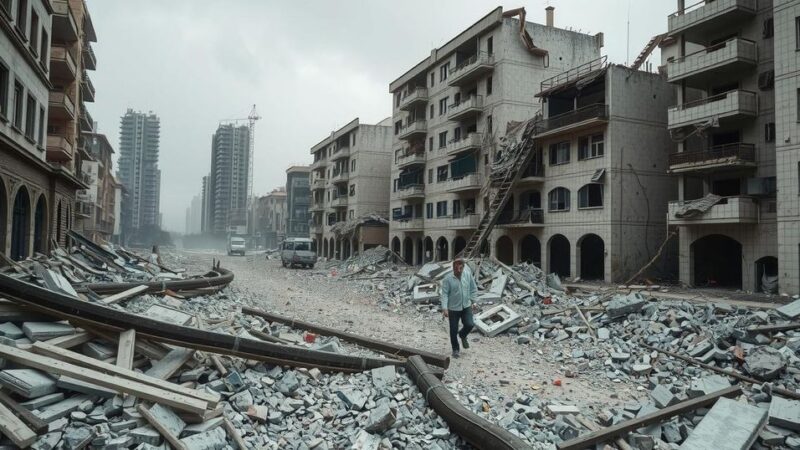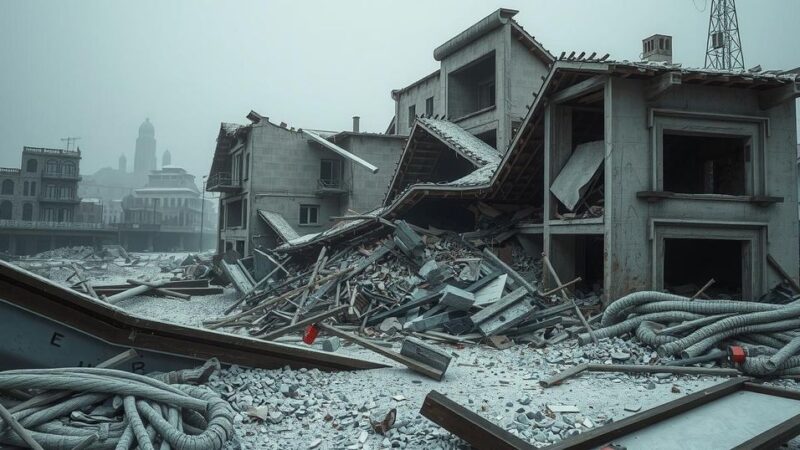Brazil is hosting COP30, with President-Designate André Aranha Corrêa do Lago emphasizing the need for a climate comeback inspired by football. Set in Belém, Amazon, the summit aims to reignite global climate action amid recent setbacks. Key discussions will focus on strong climate action plans and overcoming obstacles to enhance collective efforts towards combating climate change. Urgent calls for unity reflect the critical environment challenges and the need for decisive action.
Brazil is preparing to host the COP30 climate summit, emphasizing the necessity for a global climate comeback. André Aranha Corrêa do Lago, the President-Designate, is motivating nations by invoking football’s spirit of virada, which embodies resilience and the ability to recover from setbacks. He articulated a vision document that aims to reinvigorate climate initiatives amidst sobering circumstances such as the U.S.’s exit from the Paris Agreement and past financial inadequacies.
Scheduled for Belém, Amazon, COP30 will be notably significant as it takes place at the core of the climate crisis. January 2025 recorded unprecedented global temperatures, further elevating urgency given that 2024 was the first year to exceed the critical 1.5°C threshold. Additionally, the Financial Stability Board has alerted that climate-related disasters could destabilize financial systems, while scientists warn the Amazon rainforest is nearing an irreversible tipping point.
The Brazilian presidency intends to urge nations to present stronger climate action plans to effectively limit warming to 1.5°C. Central to this effort is the Baku to Belém Roadmap to 1.3T, a financial blueprint established at COP29 aimed at facilitating investments in low-carbon and climate-resilient initiatives in developing countries.
Though countries are responsible for establishing their own climate pledges, Brazil seeks to foster dialogues to alleviate obstacles hindering progress. The vision document cautions, “The future will judge us by how we respond to this crisis,” highlighting that insufficient ambition could reflect poorly on leadership.
Despite the urgency, climate commitment advancements remain sluggish. Many G20 nations, including China, India, and the EU, failed to meet the February deadline for 2035 updates to their climate plans. Only a few—Canada, Japan, Brazil, the UK, and the UAE—have submitted revisions. At COP29 in Baku, climate finance negotiations were particularly contentious, and India’s negotiator criticized the lack of confidence in these discussions.
Brazil is advocating for a mutirão, a collective effort to unite communities around shared climate objectives. The concluding sentiment of the vision document emphasizes, “2025 must be the year we channel our frustration into constructive action.” COP30 is poised to be an essential moment for the future trajectory of global climate action.
In conclusion, Brazil’s COP30 summit holds vital significance for global climate initiatives, advocating for a resurgence in efforts to combat climate change. With emphasis on unity and shared responsibility, the summit aims to address significant challenges and encourage stronger commitments among nations. As nations prepare to gather, the urgency of protecting the environment, particularly crucial ecosystems like the Amazon, cannot be overstated. COP30 serves as an essential opportunity for world leaders to reinforce their dedication to a sustainable and resilient future.
Original Source: www.bizzbuzz.news






